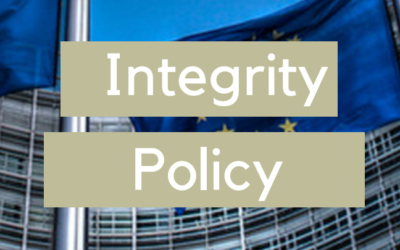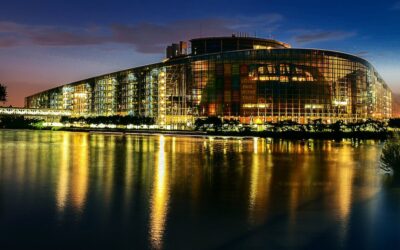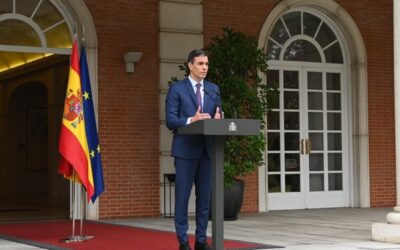It is not obvious for the US to succeed in involving NATO partners and in particular the main European countries in an action that has the Chinese giant as its ultimate addressee. The analysis of Mario Mauro, former Minister of Defence, founder of Meseuro, international relations study center.
Recently, the tension on the border between Ukraine and Russia has reached levels not seen since the 2014 Crimean crisis. The Kremlin has in fact started military exercises on land near the border with the Donbass, troops for about 100,000 men, to which must be added the naval exercises put in place by the fleet stationed in Sevastopol, in the Black Sea. The consistency of the operations has alarmed the Western powers, so much so that US President Joe Biden first ordered, and then canceled, the deployment of two destroyers in that stretch of sea. After the end of the exercises and the withdrawal of the troops, the situation has calmed down, but the Ukrainian question continues to hold ground in US-Russia relations, so much that a NATO summit has been convened for June 14, in which the leaders will participate of state and government.
It is not the first time that the south-eastern region on the border between Europe and Russia becomes a theater of confrontation between the parties. Historically, in fact, following the collapse of the Soviet Union, Ukraine has assumed the role of a buffer state between the two sides. For NATO today, the country represents an ally, so much so that the Ukrainian government has expressed its intention to build two new naval stations with Anglo-American help and President Volodymyr Zelensky is pushing for his country to join the Atlantic Organization, even if before this happens the road still seems to be long.
Even from the Russian point of view, Ukraine represents a barrier to be interposed between itself and the Western world, but it has a greater strategic-political value than its counterpart (as highlighted, in the reference to the “red lines not to be crossed”, in the annual speech Vladimir Putin to the Federal Assembly): in fact, if Kiev were to join NATO, Moscow would find itself surrounded along the entire western border. For the United States, on the other hand, the strategic gravitational center in Eastern Europe is represented by Romania, therefore the stakes have a slightly lower value, even if whoever controls the Black Sea controls the Eastern Balkans, Caucasus and Anatolia, and who commands these last two regions have as ineluctable destiny a projection on the Caspian Sea, ergo on Central Asia.
In this context, Putin referred to Belarus and Crimea (currently the victim of a water crisis caused by the cut in supplies decided by the Kiev authorities), but he did not develop a new concept within Russian strategic thinking, but limited himself to referring to the Karaganov doctrine, little known, but relevant in terms of understanding the geopolitical dynamics of the post-Soviet space, of which one of the pillars is that of the defense of Russian minorities in the former USSR countries. The 2014 armed-humanitarian intervention in Crimea moves precisely along this directive, and is accompanied by another modus operandi that has characterized, for a decade, Russian military thought, contained in the so-called Gerasimov doctrine, which makes war asymmetric (based on the domain of information, the use of technology, the element of surprise and, massively, paramilitary forces and special departments) its own pillar.
Russia, as we have seen, finds itself in a precarious situation, with the risk of seeing its space of influence reduced in its home garden, while, on the other hand, it stretches its tentacles over the Mediterranean and the Baltic, areas of traditional prerogative of the European members of NATO. And the dilemmas for the United States and Biden arise right here, that is, in being able to reconcile their interests with those of European countries. The White House has already imposed sanctions on the Kremlin regarding the Crimean affairs, but they represent a double-edged sword. The most important issue concerns the Nord Stream 2, the gas pipeline that would connect Russia and Germany, doubling gas supplies for Berlin, but bypassing, along its path, a series of countries that would see their negotiating power weakened of Moscow. From this point of view, the United States has decided, for now, not to impose new sanctions on those already present, but the issue will be at the center of the June summit.
Another headache for the Biden administration is Turkey: to all intents and purposes a NATO member, the Anatolian country has manifested neo-imperialist tendencies in recent years, rising to the role of a regional power. In containing Russia, Ankara plays a fundamental role for its strategic position: it has in fact signed a defense cooperation agreement with Kiev and in recent weeks has shown its intention to give life to the “Istanbul Canal” project, which would allow the access to the Black Sea, with Turkish approval, for military ships of any state for a potentially unlimited period of time, thus guaranteeing the United States and NATO a constant presence in the Russian backyard. Also in this case, if the United States were to give its approval to the project, the price to be paid would be high, represented, de facto, by the US willingness to turn a blind eye to the Turkish maneuvers in Libya, which would displease, and not a little, Italy and France.
In addition to this, one must remember the U.S. Pacific Pivot launched during the second Obama administration. What does this mean? That at the top of the hierarchy of American interests there is the challenge with China, therefore in the win-hold-win strategy to which at this moment the structure of the US armed forces is more similar (compared to the win-win), the challenge with Russia remains in the background, so much so that Biden has invited Putin to a face to face meeting to be held in the summer in Europe in a third country.
 The United States, while having reiterated that it will not accept further illegal annexations of Ukrainian territory by Moscow, knows that NATO’s rapid response forces in south-eastern Europe amount to about 30 battalions, against the 46 that the Kremlin could deploy. . What, however, guarantees an advantage to Russia is the ability to move its troops more quickly than NATO, thus nullifying a Western intervention. Therefore, the disadvantage would be clear.
The United States, while having reiterated that it will not accept further illegal annexations of Ukrainian territory by Moscow, knows that NATO’s rapid response forces in south-eastern Europe amount to about 30 battalions, against the 46 that the Kremlin could deploy. . What, however, guarantees an advantage to Russia is the ability to move its troops more quickly than NATO, thus nullifying a Western intervention. Therefore, the disadvantage would be clear.
At the June summit Biden could ask the European allies for greater commitment, urging them to put aside their disputes, but at the same time he could decide to resort to the instrument of financial sanctions, dealing a severe blow to the already tried Russian economy and, above all, to the interests of the oligarchs on which Putin’s power is based, as happened in the Donbass affair, even if it was an inevitable choice, which reached the height of Russian provocations (interference in the presidential elections, cyber attacks, maneuvers on the Ukrainian border ).
What is certain is that for the Biden presidency it is not a foregone conclusion to be able to involve NATO partners and in particular the main European countries in an action that has the Chinese giant as its ultimate recipient, putting, if not in brackets, however, their regional interests in the Euro-Mediterranean chessboard are in a secluded position.



